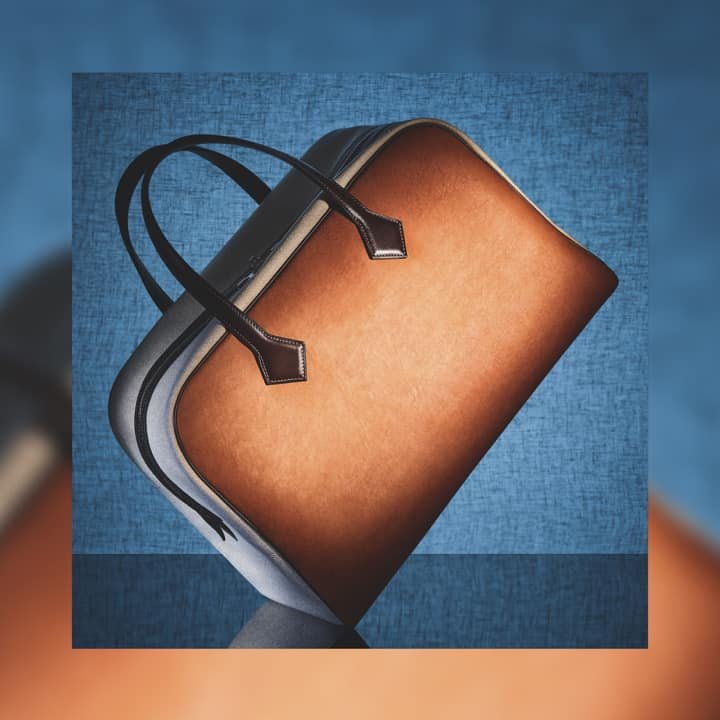Huge Animal-Free Leather Production Plant Set To Open In South Carolina
The facility will use fungus to produce an innovative and sustainable leather alternative that’s free-from animals and plastic.
Credit: MycoWorks
South Carolina is set to welcome a huge new production plant that will produce an innovative leather alternative that’s free-from both animals and plastic.
Billed as the “world’s first commercial-scale fine mycelium plant”, the factory is by MycoWorks, a biotechnology company that creates mycelium - a fungal-based biomaterial that can replace the role of animal leather.
Set to begin operating from September this year, the 136,000 square foot facility will employ more than 350 people, who will help produce millions of square feet of ‘Reishi’ each year. MycoWorks describes Reishi as a new category of premium, natural material, which features the strength, durability, and hand-feel of the finest animal-based leathers, but with a lower environmental impact as it’s made from mycelium.
With brands racing to meet new sustainability demands, new and innovative materials like mushroom-leather are positioned to transform the fashion industry into being able to produce familiar materials but with less impact on the planet. And MycoWork, with its plastic-free leather alternatives, is positioning itself at the forefront of this industry trend, having already partnered with French luxury design house Hermès, as well as reportedly having contracts with a range of other major brands.
MycoWorks’ previous collaboration with Hermès, the world’s first object made with Fine Mycelium. Credit: MycoWorks
"This is the moment the luxury industry has been waiting for; a plastic-free leather alternative that offers undeniable beauty and performance - at scale," said Patrick Thomas, former CEO of Hermès and MycoWorks Board Member. "Now that the challenge of supply has been solved, brands will move quickly to commercialize items made with Reishi."
Founded in 2013 and based in San Francisco, Mycoworks’ fine mycelium process produces the luxury material that has the texture and functionality of soft, supple animal leather. It can also be grown to fit the desired size, shape, and thickness, in turn, offering designers an excitingly innovative, low-waste material to work with.
Why We Need Solutions To Animal-Leather
Soon to be valued at nearly $128.61 billion, the global animal leather industry slaughters over one billion animals every year.
Contrary to popular belief, animal leather is not simply a “by-product” of the meat industry - it’s a co-product. Animal leather is in itself a fully mechanized, independent industry that has a detrimental impact on the planet, animals, and the factory workers involved in its production.
Credit: MycoWorks
And recently, the animal leather used by more than 100 fashion brands has been linked to deforestation in the Amazon, according to a new report compiled by Slow Factory. “The Amazon rainforest is fast approaching the tipping point of irreversible ecosystem collapse, according to scientists,” the report states, and called for the world’s leading fashion brands to act immediately in order to protect the Amazon rainforest, its people, and our collective global climate future.
From animal leather grown in a lab, to boots made from apple leather, there’s so many exciting new innovations that are transforming the fashion industry into something more kind to the planet. Species Unite founder Elizabeth Novagratz has curated a series of fashion-focused podcast episodes that feature interviews with leading industry experts and designers who are driving the industry forward - listen here.
We Have A Favor To Ask…
Species Unite amplifies well-researched solutions to some of the most abusive animal industries operating today.
At this crucial moment, with worldwide momentum for change building, it’s vital we share these animal-free solutions with the world - and we need your help.
We’re a nonprofit, and so to keep sharing these solutions, we’re relying on you - with your support, we can continue our essential work in growing a powerful community of animal advocates this year.
More stories:
Species Unite
A collection of stories of those who fight the good fight on behalf of animals.






A new study has revealed a landmark process that can now create bigger pieces of whole meat - without needing to farm an animal.